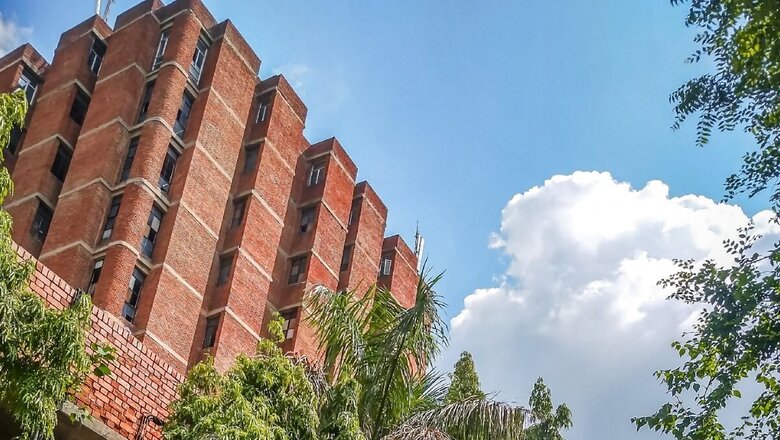
views
In its centenary year, the present administration of Delhi University (DU) is striving to make history by aiming for 5000 permanent appointments. However, the process of filling over 2000 permanent positions within a span of eight months, a long-awaited development, has faced opposition from those who resist change.
The real problem lies in the habit of opposing everything based on ideology, which has remained a constant in higher education institutions, despite significant academic losses. Unfortunately, many fail to recognise these losses, especially when academic leadership falls into the hands of individuals who are resistant to progress. But, fortunately, what DU is experiencing now is firm leadership and a visionary vice-chancellor.
VC setting the agenda of governance
Professor Yogesh Singh, the current Vice-Chancellor of the University of Delhi, assumed his position amid tumultuous circumstances and a string of protests. However, he successfully resolved the issues and implemented a streamlined process for promotions and appointments. As of now, approximately 2000 positions out of 4500 have been successfully filled in the university and its constituent colleges. Not only this, he is proactively playing a part in implementing the National Education Policy (NEP) 2020.
Under the present VC, the University has become a trailblazer in the field of academics, setting benchmarks for others to emulate. It is actively involved in revolutionising higher education by aligning curriculum frameworks and program structures with the NEP 2020.
NEP 2020 implemented
The NEP 2020 aims to transform the education system in the country, and DU is fully committed to implementing the policy in its true essence. The University has taken the bold step of implementing a new Undergraduate Curriculum Framework 2022 (UGCF) which will require overhauling the existing system to make the curriculum in line with the philosophy of NEP. The UGCF 2022 aims to provide
multidisciplinary and holistic education with the rooting in culture and ethos of the nation and emphasis on research, skill development and higher-order thinking skills to promote innovation and employability.
Examining Past Practices
Examining past practices reveals the detrimental effects of Left-wing ideological opposition to change, reforms, and forward-looking initiatives that have persisted for decades. The control and influence exerted by these opposing factions over teachers’ representation in trade unions and statutory bodies have effectively impeded any positive change in the academic environment of the University. This opposition has created a deadlock in teaching and hindered the overall advancement of educators’ cause.
The ultimate sufferers of this opposing effect, the teaching community of DU, may not even have fully realised this until the present administration took steps to bring teaching and teachers back on track, disregarding this ‘opposing syndrome.’
What have some opposed?
The implementation of OBC provisions in teaching positions at the University has been continuously hindered by Left-wing ideological opposition, as per the Constitution of India. However, the present DU administration has taken steps to appoint individuals to approximately 5000 vacant positions that have accumulated as ad-hoc appointments over the past two decades.
Additionally, the regular promotions of thousands of Assistant Professors to Associate Professors and Professors have been jeopardised due to the constant tussle created by the opposition led by Left-wing factions. This ongoing conflict, which persisted across various administrations, has resulted in the retirement of numerous teachers without promotion or significant financial recovery upon retirement. The opposition’s influence within trade unions and statutory bodies only intensified after the Left-wing opposition, supported by the Congress leanings, joined the cause in 2014.
Rise of platforms disturbing academic process
DU has witnessed the rise of platforms promoting anti-national slogans and anti-governmental agitation led by these opposition academic players. These individuals, through their roles as columnists, social activists, artists, union leaders, and student groups, have a substantial outreach and a significant impact on misleading society. Despite the introduction, adoption, and implementation of the NEP 2020, these opposition factions continue to fuel agitation and movements, inciting students and the teaching community to undermine the very purpose of the policy. Above all, they vehemently opposed the process of permanent appointments in the University, just as they did during previous attempts to regularise teaching positions. This has resulted in a massive backlog of teaching positions concerning social justice, leading DU to be in a state of constitutional offence.
Students & Teachers are real sufferers
What have they lost in the process? By causing substantial academic losses to teachers and the teaching community at DU, these opposing players first lost the trust and faith of common teachers and students. Subsequently, they lost their long-standing control over the appointment process for ad-hoc or permanent positions within the University system. After 24 years of destructive leadership rooted in Left-wing ideology, the University finally freed itself from such self-defeating influences within the teaching community in 2021.
The present reality reflects the challenges of establishing a functional ecosystem within the University. Nonetheless, through determined and dedicated efforts, the DU administration, in its centenary year, has brought smiles to the faces of those awaiting promotion and regularisations for years. Prof Yogesh Singh, the VC of the University, has not only streamlined the appointments and promotions but also ended the culture of ad-hocism. Not only this, he is proactively playing a part in implementing the NEP amidst all the opposing forces trying to go against the progressive ethos and calling out for the rejection of the policy. Remarkably, approximately 1450 ad-hoc teachers have been permanently placed in various departments of different colleges at DU. With this positive trend and target, DU is well on its way to filling the remaining vacant positions in the coming months.
Sanjay Verma, Associate Professor, Department of English, University of Delhi, Delhi. Views expressed are personal.




















Comments
0 comment